NOVANEWS

ed note–so much for the BS the world was fed for over 2 years that IsraHell had no stake in the ‘Arab Spring’ and was not maneuvering to remove Assad.
Times of Israel
When Israel debates whether the fall of Syrian President Bashar Assad is “good or bad for the Jews,” it should consider the devastating impact his ouster would have on Israel’s sole strategic foe, Iran, said Sima Shine, who heads the Iran desk at Israel’s Ministry of Strategic Affairs.
“In my personal opinion, the ‘devil we know’ is worse than the devil we don’t,” said Shine, adding that the Israeli security establishment is gradually becoming more convinced that Assad remaining in power would be far worse than his ouster, although that position has not yet been adopted as official Israeli policy.
Israeli officials have largely been cautious when speaking out on the Syrian civil war, raging since March 2011. In April, Prime Minister Benjamin Netanyahu instructed his cabinet ministers to keep silent on Syria following a radio interview by deputy foreign minister Ze’ev Elkin, in which he seemed to be calling for international military action in Syria.
‘A weakened Assad [remaining in power] would be completely dependent on Iran. In my opinion that’s the worst thing that can happen to Israel’. Israel’s main strategic threat is Iran. Not Syria, not Hamas. Therefore, strategically, Israel should examine things from the perspective of what harms Iran and what serves Israel’s agenda in confronting it. If Bashar remains in power, that would be a huge achievement for Iran. A weakened Assad [remaining in power] would be completely dependent on Iran. In my opinion that’s the worst thing that can happen to Israel.”
Those sentiments echo the outlook sounded by former defense minister Ehud Barak, who in an interview with CNN in May 2012 said that Assad’s fall would deal a severe blow to his allies Iran and Hezbollah. But one year and some 90,000 casualties later, Shine is less equivocal in the words she chooses.
“Bashar Assad must not remain in power. Period. What will happen later? God only knows.”
“The alternative, whereby [Assad falls and] Jihadists flock to Syria, is not good. We have no good options in Syria. But Assad remaining along with the Iranians is worse. His ouster would exert immense pressure on Iran.”
Shine said she hoped the Syrian rebels were being assisted, though was cautious in admitting Israel was indeed providing any such aid. “I hope Israel is doing more than I know of,” she said. In an event, Israel would not publicly admit assisting the rebels for fear of harming their domestic posture.
“That would be bad for the rebels themselves. They do not want to be perceived as being supported by Israel, which — as the occupier of the Golan Heights — is the enemy.”
Did the Israeli security establishment fail in predicting the Syrian uprising? Shine rebuffs that criticism. Israeli intelligence gathering, she noted, always focused on government officials in Syria — who themselves never anticipated the revolution — not on the common Syrian citizen. “If Assad himself didn’t know [the revolution was imminent], how are we expected to have known?”
“Even if we had remarkable sources in the Syrian public, who ever attributed any importance to the Syrian public? Everyone thought they were a group of people scared of the regime. Who ever thought they would take to the streets and kill each other?”
Asked whether with its back to the wall following Assad’s ouster Lebanese terror organization Hezbollah could attack Israel, Shine answered in the negative.
“I don’t think so. Why would Hezbollah take on Israel alone?”



